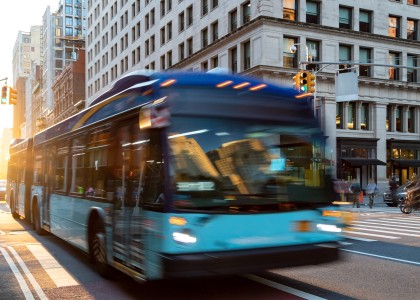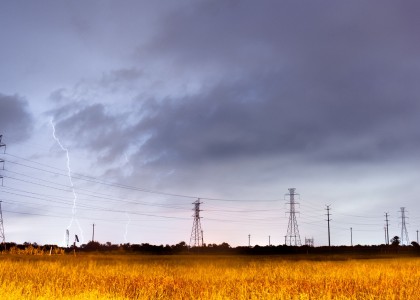One of the most important things we can all do to mitigate the COVID-19 pandemic is simple: stay home. Whether you’re teleworking, taking care of a loved one, or just staying safe, spending more time inside can mean higher home energy bills. With that in mind, we asked ACEEE Buildings Program Director Jen Amann for advice on how folks can better manage their home energy use.
Amann: With the whole family or household spending so much more time at home, it’s important to prepare for a larger home energy bill. But don’t panic! Keep in mind that transportation energy use and cost will be reduced and help offset extra home energy.
Here’s how you can do even more to help the energy bill from blowing up too much:
Experiment with your thermostat. Rework your thermostat schedule and settings to see how little you can heat or cool your home while maintaining comfort for all occupants. Don’t be afraid to dress comfortably for the season. You may need to look professional from the chest up for virtual meetings, but that doesn’t mean you can’t keep cozy in sweatpants and slippers if it’s still cold in your area, or stay cool in shorts and sandals if you’re in a warmer climate.
Spring ahead. Spring began this past weekend, with temperatures warming for many. Take advantage of that by turning off the heat and opening the windows when possible. Too hot? Check out these tips on how to keep yourself cool. Need to warm up? Here’s how to keep your home nice and toasty without sacrificing energy efficiency.
Dine-in efficiently. More meals at home means a lot more cooking, dishes, and dishwasher loads.
When it comes to cooking, make sure you’re following energy-saving tips, such as using the proper-sized cookware for burners and the most energy-efficient appliances you have (such as a microwave or toaster oven rather than a conventional oven, if possible). Maintaining and cleaning your equipment properly also helps. Microwaves, for instance, work more efficiently when the inside surfaces are clean of food bits, and your pots and pans will conduct heat better and save energy if they’ve been scrubbed clean on the bottoms.
Time to wash those dishes? Save energy by scraping, not rinsing, extra food before loading the dishwasher, turning the water temperature down, optimizing your load size, and using the energy-saving setting or eco-cycle on your dishwasher.
Plan meals and snacks to minimize time staring into the open refrigerator. And if you’re able to patronize a local restaurant offering take-out, put the leftovers away all at once.
Efficient Electronics. Adults teleworking or following the TV news all day, paired with kids streaming content or playing video games, can cause a spike in your electricity bills. Encourage the kids to watch TV, stream videos, and play video games together to minimize the number of devices that are on throughout the day. Engage them in board games, crafts, and outside play when possible – great options for keeping minds and bodies busy and getting in some socializing (even if it is with an annoying younger sibling!).
Hand-washing Washing hands is a must, but washing in hot water is not necessary for safety during this pandemic. Multiple studies show that washing your hands with soap and cold water is just as effective as washing them with hot water. Of course, proper handwashing technique is a must regardless of water temperature. Using cooler water will also help keep your skin soft and prevent the dry skin and irritation that often comes with frequent handwashing. By sticking to cold water, you’ll reduce energy consumption and water waste, particularly if you have to run the water for a bit to get the hot water to the tap.
Doing laundry? Get the most energy-efficient loads by reducing your water temperature, using eco settings, and running only full loads of laundry. When it comes to drying, try to air-dry if you are able. It will save energy and wear and tear on your clothing. If you can’t air-dry, don’t fret. There are many other things you can do to increase efficiency, such as making sure your dryer filter is clean and running loads consecutively to take advantage of residual heat.
Stay safe and healthy, and please visit our SmarterHouse website for more energy-saving tips.





